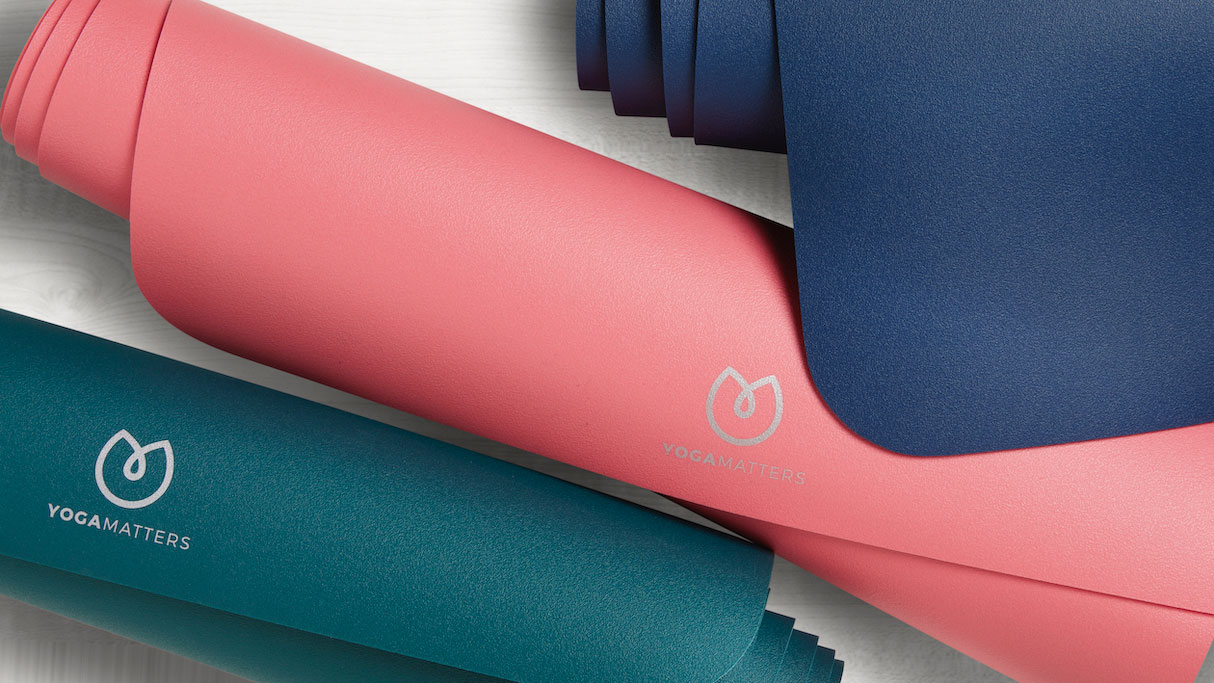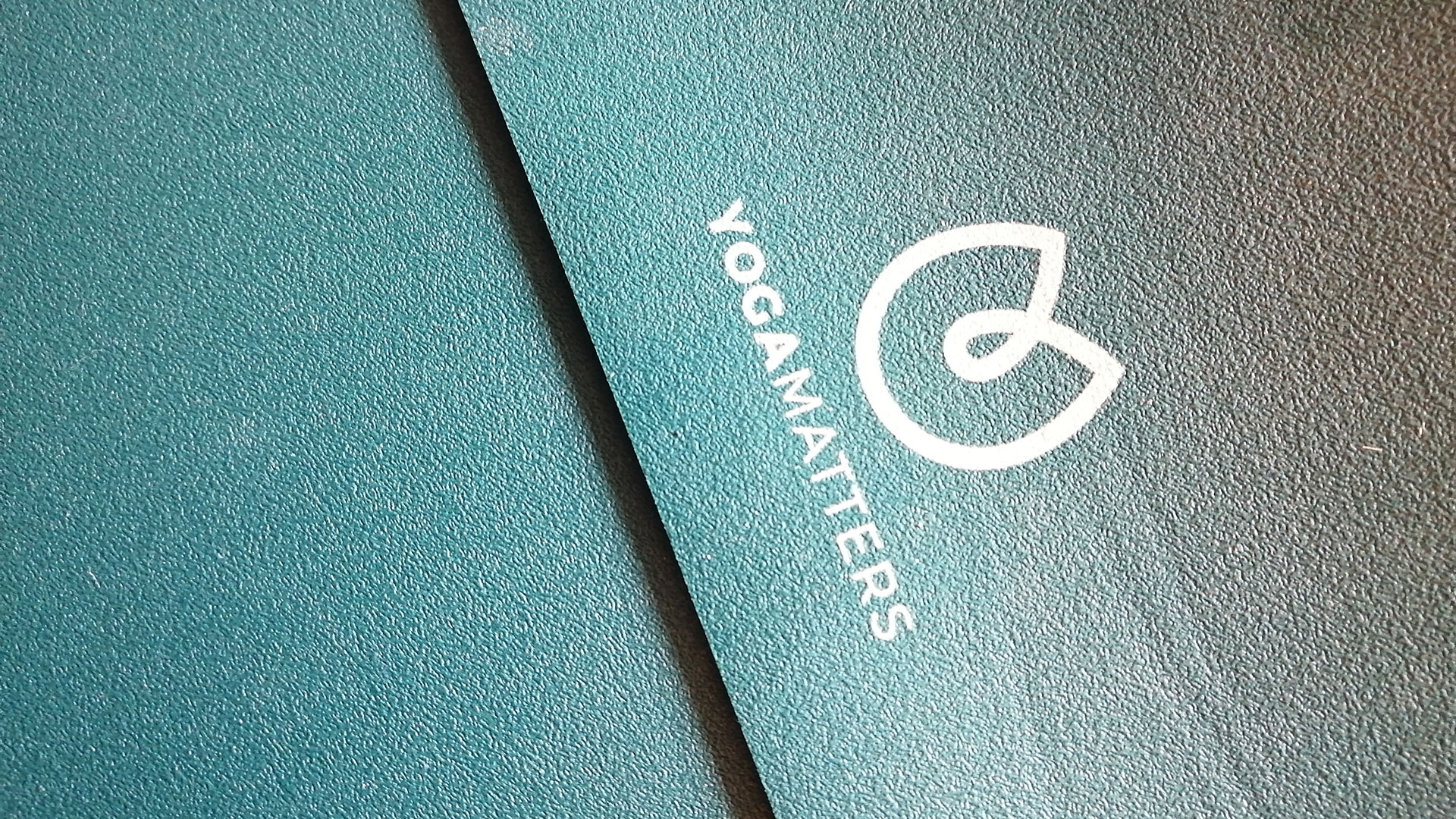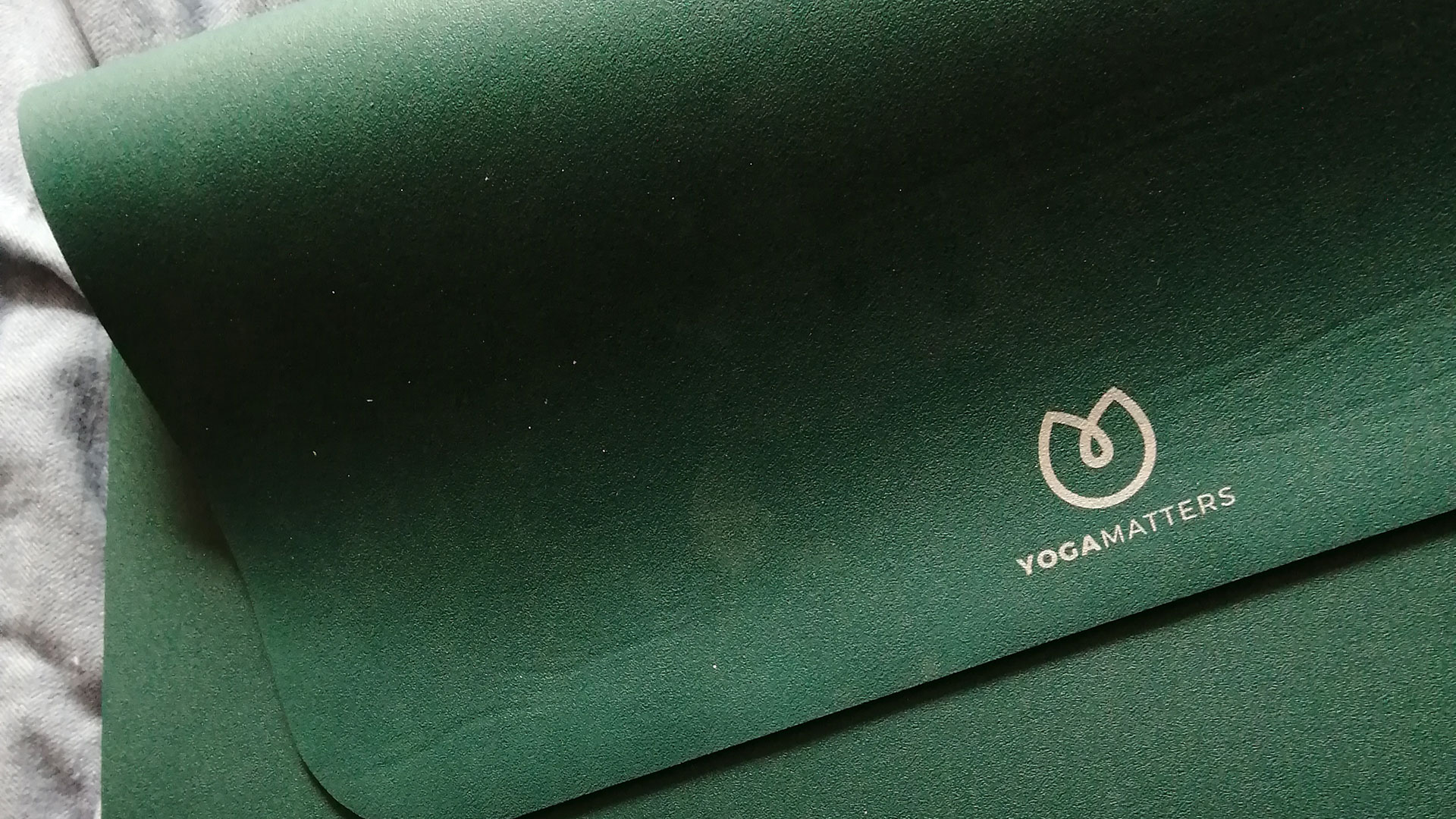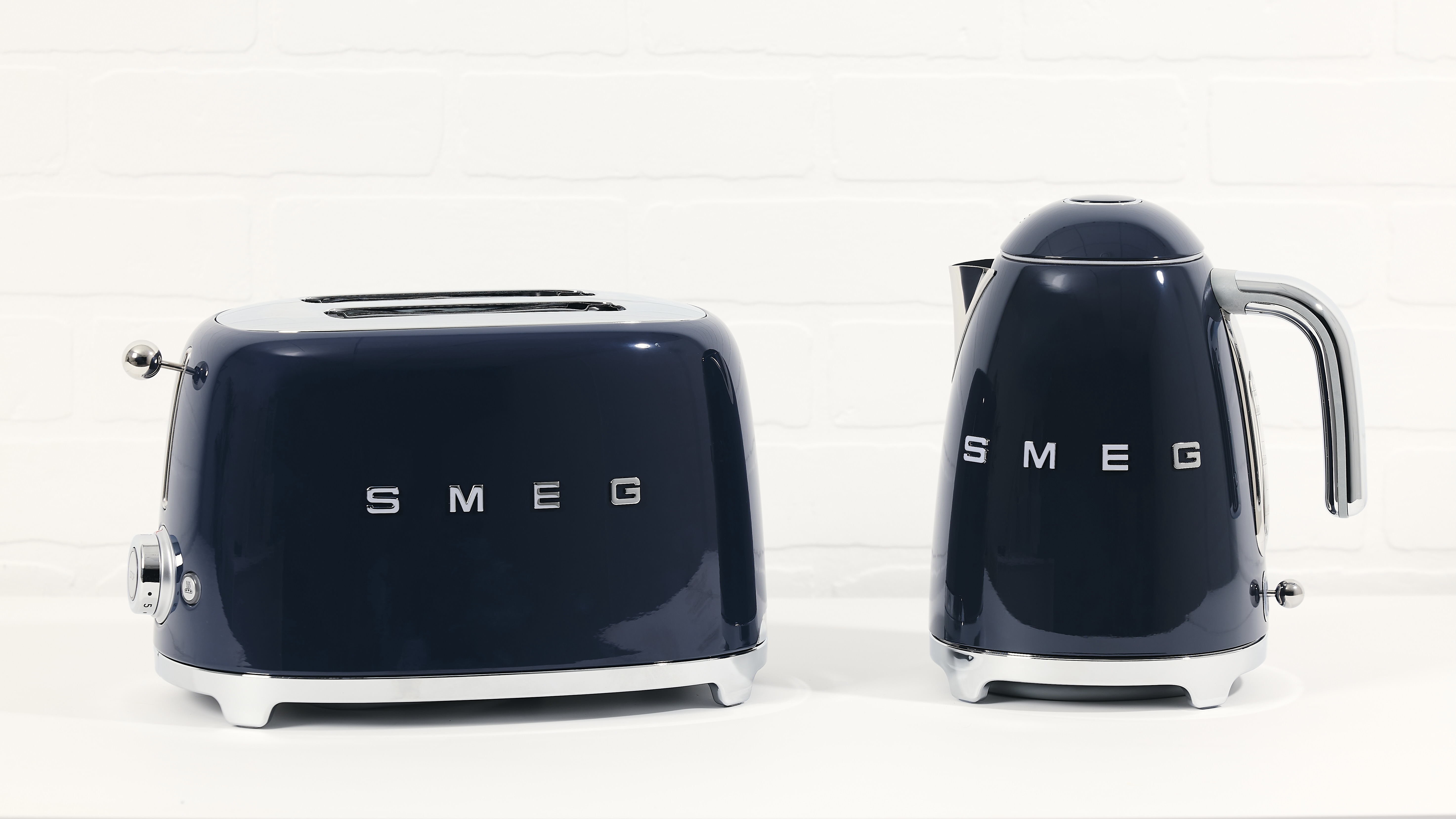Yogamatters Eco Flow Yoga Mat review: a no-frills mat with incredible grip
The Yogamatters Eco Flow mat promises luxury alongside eco-friendliness – does it deliver? Here's our review

The Yogamatters Eco Flow mat has a tacky surface that delivers superb grip, along with a cushioned but stable surface for your practice. The design is simple but very effective... but we'd perhaps expect a bit more for the higher price.
-
+
Superb grip, even when sweaty
-
+
Can use either side
-
+
Sustainably made and biodegradable
-
-
No guideline markers
-
-
Holder not included
-
-
Bit smelly to start with
Why you can trust T3

The Yogamatters Eco Flow yoga mat joined the Yogamatters range in 2022, as a luxurious, eco-friendly option. It's made from natural tree rubber, is 4mm thick, and available in three different colourways.
With an RRP of £70, it's one of the pricier yoga mat options around. But is it worth the cash? How does it compare to the rest of today's best yoga mats? Yogamatters makes a wide range of yoga mats, accessories of clothing, and I rate it highly as a brand. We've also tested a couple of other, cheaper mats from the brand – the Yogamatters Aqua Evolve mat and the Yogamatters Eco Rise mat – so I was excited to see what this new premium option offers.
I've been using it for my practices – including some hot yoga sessions – over the past few weeks to see how it holds up. Read on for my full Yogamatters Eco Flow yoga mat review.
Yogamatters Eco Flow Yoga Mat review: design and features
The Yogamatters Eco Flow yoga mat is 183 x 61cm (one of the most common mat dimensions) and 4mm thick. While some of the other rubber-based mats have toppers added, this one's entirely made from natural tree rubber, which has the benefit of meaning you can flip it and use either side. That means it's not suitable for you if you have a rubber allergy, which feels obvious, but I've said it now anyway. My mat had a slight, not entirely pleasant smell when it was first delivered (think curiously fishy), but it went away after the first couple of uses, and no one in my classes complained so it can't have been that bad.
Yogamatters Eco Flow Yoga Mat review: specs
Material: natural rubber
Weight: 2.5kg
Thickness: 4mm
Dimensions: 183 x 61cm
You've got three shades to choose from – Oceana, Coral and Midnight, which translates as dark green, pink, and dark blue. While the colour range here isn't massive, for what it's worth I think these are some of the nicest shades I've seen in a rubber yoga mat, and a little unusual too. Yogamatters warns the colour might fade a bit over time, but I haven't had mine long enough to comment on that. On the care front, it's recommended you store the mat rolled up, don't leave it in direct sunlight and avoid soap or chemicals when cleaning (here are more tips on how to clean a yoga mat).
If you're interested in making eco-friendly buying decisions, we are told the rubber is sustainably harvested, and this mat is also recyclable and biodegradable at the end of its life.

Other than a small, silvery Yogamatters logo, there aren't any markings at all on the Eco Flow mat, so if you're after something that includes position markers, you're all out of luck. Unlike most pricier mats, this one doesn't come with any kind of carry case, which feels a bit stingy on Yogamatters' part. I'd expect at least a basic carry strap, included – they surely cost peanuts to make, and are pretty much essential if you want to take your mat to class with you.
Yogamatters Eco Flow Yoga Mat review: comfort and performance
I've been very impressed with the Eco Flow Yoga Mat so far. The grip is fantastic, and feels reliable and secure. Yogamatters says this mat has a "smooth surface", which I'd say is not accurate – it's textured all over, with a slightly tacky feel, like you sometimes find with foam mats. While it stayed ultra-grippy in my sweaty, sweaty hot yoga class, I got caught in a downpour on the way to another class, and that did make the mat slippy. Because of the textured surface, it also took most of the class to dry off, which was a little annoying.
That stickiness does also mean you can sometimes find your clothes getting caught on it, for instance when transitioning from chaturanga into up dog (unless you're advanced enough to be able to do this without touching your torso to the mat, in which case well done to you). And it collects fluff, hair and general grime pretty easily. But I'm nit-picking here, really, because the grip is superb, and will work for you in almost all situations.
Although preferences will vary from yogi to yogi, the 4mm thickness provides the right level of cushioning for me, and the rubber provides a nice stable surface for balance poses too.

Yogamatters Eco Flow Yoga Mat review: verdict and alternatives
Overall, I was very impressed with the Yogamatters Eco Flow mat. The grip is excellent, it provides a great balance of cushioning to support, and it's eco-friendly too. For the price, I think Yogamatters could have thrown in some extra features, though – a basic strap to carry it around with, at the very least. I also missed having some kind of positioning guides.
If you're willing to pay a little more, the Liforme yoga mat and Yogi Bare mats both have position markers. They're also both made from natural rubber, but with smooth toppers, for those of you who don't like the sound of the slightly tacky top of the Eco Flow. The Lifeorme one also comes with a proper carry bag. For a lower price, you could also check out the Yogamatters Eco Rise Yoga Mat, which is slightly thinner at 3mm, and has a cotton-blend mesh surface.
Sign up to the T3 newsletter for smarter living straight to your inbox
Get all the latest news, reviews, deals and buying guides on gorgeous tech, home and active products from the T3 experts
Ruth is a lifestyle journalist specialising in sleep and wellbeing. She has tested more mattresses than her small flat can handle and will talk at length about them to anyone who shows even a passing interest, and has had to implement a one-in-one-out pillow policy for fear of getting smothered in the night. As well as following all the industry trends and advancements in the mattress and bedding world, she regularly speaks to certified experts to delve into the science behind a great night's sleep, and offer you advice to help you get there. She's currently Sleep Editor on Tom's Guide and TechRadar, and prior to that ran the Outdoors and Wellness channels on T3 (now covered by Matt Kollat and Beth Girdler-Maslen respectively).
-
 Warning: Ciele’s refreshed Elite Collection may cause excessive garment envy on race day
Warning: Ciele’s refreshed Elite Collection may cause excessive garment envy on race dayFlex on your run crew with Ciele’s latest drop
By Matt Kollat Published
-
 Smeg adds a touch of navy sophistication to its iconic breakfast set
Smeg adds a touch of navy sophistication to its iconic breakfast setIt's a minimalist's dream
By Lizzie Wilmot Published
-
 My most anticipated Netflix movie of the year gets a wild new trailer
My most anticipated Netflix movie of the year gets a wild new trailerHavoc looks pretty unbelievable
By Max Freeman-Mills Published